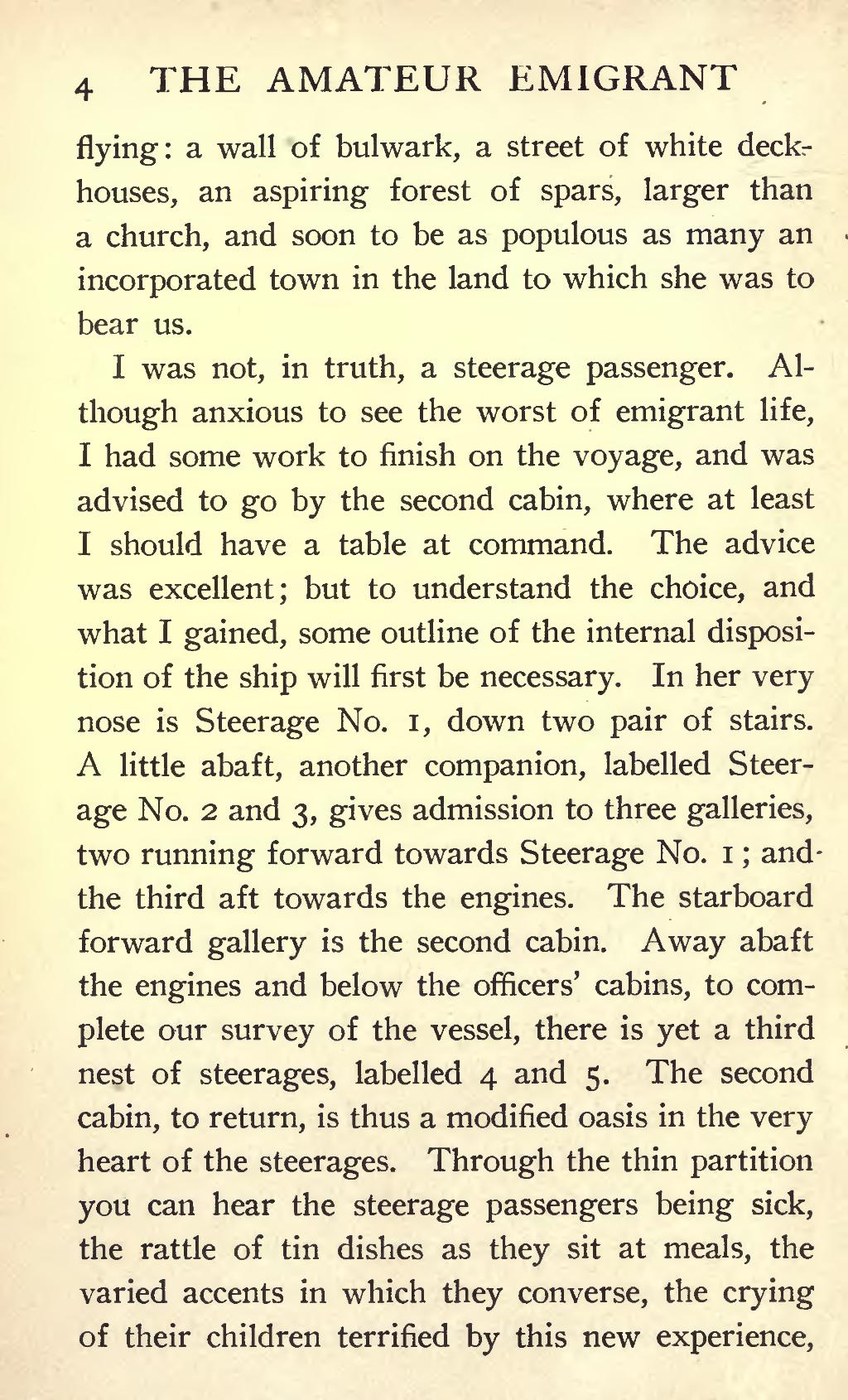flying: a wall of bulwark, a street of white deck-houses, an aspiring forest of spars, larger than a church, and soon to be as populous as many an incorporated town in the land to which she was to bear us.
I was not, in truth, a steerage passenger. Although anxious to see the worst of emigrant life, I had some work to finish on the voyage, and was advised to go by the second cabin, where at least I should have a table at command. The advice was excellent; but to understand the choice, and what I gained, some outline of the internal disposition of the ship will first be necessary. In her very nose is Steerage No. 1, down two pair of stairs. A little abaft, another companion, labelled Steerage No. 2 and 3, gives admission to three galleries, two running forward towards Steerage No. 1; and the third aft towards the engines. The starboard forward gallery is the second cabin. Away abaft the engines and below the officers' cabins, to complete our survey of the vessel, there is yet a third nest of steerages, labelled 4 and 5. The second cabin, to return, is thus a modified oasis in the very heart of the steerages. Through the thin partition you can hear the steerage passengers being sick, the rattle of tin dishes as they sit at meals, the varied accents in which they converse, the crying of their children terrified by this new experience,

